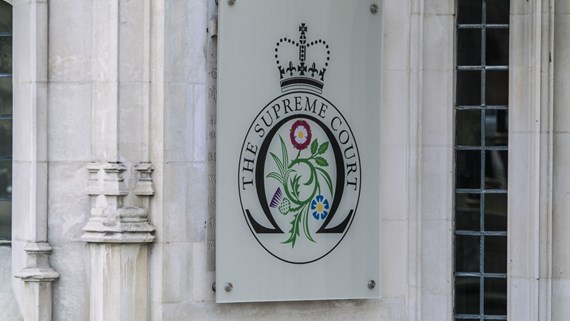Supreme Court decides on the scope of the reflective loss rule
Insight

In one of the most significant commercial law decisions in recent years, the Supreme Court has handed down its landmark judgment in Marex Financial Limited v Carlos Sevilleja Garcia [2020] UKSC 31 following 14 months of deliberation.
The judgment drastically curtails the scope of the “reflective loss” rule which limits the recovery of losses that are merely “reflective” of losses suffered by a separate company.
Traditionally the rule has prevented shareholders from claiming compensation for reductions to the value of their shares which are a consequence of damage inflicted on their company. Over the years the Courts have taken an increasingly broad approach, applying the principle not just to shareholders, but also to creditors, thereby preventing them from recovering losses from third parties who have wrongly damaged a debtor company leaving it unable to pay its debts. The growth of the principle has been described as akin to ““some ghastly legal Japanese knotweed” whose tentacles have spread alarmingly and which threatens to distort large areas of the ordinary law of obligations”.
Marex makes it very clear that claims by creditors are no longer caught by this principle. This clears a path for lenders and creditors to recover their losses directly from third parties whose wrongdoing is the cause of a debtor’s poor financial position (such as errant directors who have stripped their company’s assets).
It has particular significance for creditors of insolvent companies who would otherwise be dependent on persuading a liquidator to pursue a claim against the third party on the company’s behalf.
It also goes some way to addressing a concern of the All Party Parliamentary Group on Fair Business Banking that creditor banks, whose negligence has driven a company into insolvency (for example through mis-selling), were reducing the chances of action being taken against them by appointing their own liquidator who would then be reluctant to issue proceedings against them on behalf of the company.
What is the reflective loss rule?
Where a third party commits a wrong against a company causing it to suffer loss, the reflective loss rule bars the shareholder of that company (who has also suffered loss through a reduction in value of their interest) from bringing a claim directly against the third party wrongdoer. The proper claimant in wrongs committed against a company, whether by directors or by third parties, is considered to be the company itself
The rule originates from the 1982 case of Prudential Assurance v Newman Industries (No.20) in which the court said that “the shareholders cannot recover a sum equal to the diminution in the market value of his shares, or equal to the likely diminution in dividend, because such a “loss” is merely a reflection of the loss suffered by the company. The shareholder does not suffer any personal loss”.
The rationale for this principle is that:
- there would be a risk of double recovery if both the company and its shareholders could pursue a wrongdoer for the same loss;
- in claims involving director misconduct, a shareholder has alternative recourse through the (theoretical) right to side-step the board and bring a “derivative action” on behalf of the company; and
- there is also a concern that, if a shareholder could litigate separately, this could cause a conflict of interest between the company and the shareholders, or prejudice minority shareholders/creditors, should an individual shareholder’s claim effectively bar the company from pursuing the same loss.
Over the years, a number of cases have expanded the rule beyond the straightforward shareholder scenario and led to a lack of clarity as to its application. Shareholders who were also creditors of the company, shareholders in their capacity as employees of the company, and non-shareholder creditors of a company had all been barred from bringing claims as a result of the rule.
Marex: the facts
In 2013, the Commercial Court awarded Marex damages in excess of US$5million against two companies called Creative Finance Limited and Cosmorex Limited (together, the Companies).
The Companies were located in the BVI and were the principal trading vehicles of the Defendant, Carlos Sevilleja Garcia. Upon being informed that the Court Order had been made against the Companies, Mr Sevilleja dishonestly stripped them of their cash assets and transferred the proceeds to his personal bank accounts. As a result, the Companies could not satisfy the judgment debt (along with other debts) and were placed into liquidation.
Marex brought fresh proceedings against Mr Sevilleja for:
- knowingly inducing and procuring the Companies to act in a wrongful violation of Marex’s rights under the 2013 court order; and
- intentionally causing loss to Marex by unlawful means (ie fraud).
By way of defence, Mr Sevilleja relied on the reflective loss rule, arguing that Marex was barred from bringing such a claim because his actions had not caused Marex any direct loss and that instead its losses were merely derived from damage suffered by the Companies.
The Court of Appeal decision
In a controversial decision issued in 2018 the Court of Appeal held that, for the purposes of the reflective loss rule, there is no distinction between shareholder creditors and non-shareholder creditors. Accordingly it held that the rule should apply equally to all creditors.
A non-shareholder creditor, such as Marex, was therefore precluded from bringing a direct claim against Mr Sevilleja.
The Court of Appeal also considered the scope of an exception (the so-called Giles v Rhind exception) which applied where it was impossible for the company to pursue a cause of action against the wrongdoer. It confirmed that this exception can only be invoked in limited circumstances, where the defendant’s wrongdoing has been directly causative of the impossibility the company faces in bringing the claim. The Court of Appeal held that Mr Sevilleja’s wrongdoing did not make it impossible for the Companies to pursue a claim against him and the exception was therefore inapplicable.
The judge noted that Marex would not be left without a remedy as a result of the decision, because they could theoretically require the liquidator to pursue the Companies claim against Mr Sevilleja in the BVI, or it could take an assignment of the Companies’ claims. In practice, however, Marex claimed that the liquidation process went into abeyance, with the liquidator failing to investigate claims, to locate Marex’s missing funds, or to issue proceedings against Mr Sevilleja.
The Supreme Court decision
The Supreme Court unanimously allowed Marex’s appeal, reversing a string of previous Court of Appeal and High Court decisions which supported the applicability of the rule to creditors.
It decided that a claim by a company’s creditor against a third party will not be barred even where it reflects loss suffered by the company, and even if the creditor is also a shareholder.
Three of the seven Judges argued in a (non-binding) dissenting judgment that the doctrine of reflective loss should be abolished in its entirety. They contended that there was no justification for a separate principle preventing a shareholder from bringing a claim in these circumstances but rather that the Court should simply use its other tools to prevent double-recovery.
However, the majority considered that the case of Prudential established a rule of law in 1982 and that the reflective loss principle could not be abandoned.
In contrast to the Court of Appeal and decisions in other cases, however, the majority held that the principle should be applied narrowly: only to shareholders bringing claims for share-value losses suffered in their capacity as a shareholder which are the consequence of losses sustained by the company, in respect of which the company also has a cause of action.
The majority considered that the rule should not be applied beyond these particular circumstances, leaving it open for shareholder claimants to bring claims against third parties where they can identify losses which do not fall within that description, even if the company has a right of action in respect of substantially the same loss.
The majority also overturned the Giles v Rhind exception, again on the basis that the decision in Prudential established a rule of law that reflective shareholder losses are not recoverable, and that this should not be departed from even in the exceptional circumstances outlined in Giles.
Comment
This judgment fundamentally restates the rule on reflective loss and will be welcomed by many. The rule as previously stated led to injustices and many in the legal profession were critical of its restrictive nature and wide scope.
The key takeaways from the decision are that:
- It is now easier for creditors to bring claims directly against asset-stripping shareholders and other third party wrongdoers, instead of having to persuade liquidators to take action on the company’s behalf. In the current financial climate, we would expect more lenders and creditors to pursue direct action against third parties who have defrauded or otherwise damaged a debtor company.
- It goes some way towards addressing a concern of the All Party Parliamentary Group on Fair Business Banking which had taken the unusual step of intervening in the appeal to the Supreme Court. They had sought to draw the attention of the Supreme Court to the practical difficulties faced by shareholders, guarantors and smaller creditors in persuading the liquidator of an insolvent company to pursue its legitimate claims against third party wrongdoers, particularly where that liquidator had been appointed by a creditor guilty of misconduct. The APP Group gave the examples of claims being obstructed by liquidators appointed by creditor banks who were guilty of mis-selling.
- It may create a window of opportunity for shareholders to bring claims where they can show that their loss was not suffered in their capacity as a shareholder, which are a consequence of losses to the company.
- Although the Giles v Rand exemption had a narrow application in reality, the meaning of “impossibility” was uncertain and the requisite causal link between the defendant’s wrongdoing and that impossibility was debatable, creating an opportunity for further complex litigation. Removing this exemption in its entirety simplifies the rule greatly. However, by doing so there may be circumstances where a wrongdoer’s conduct goes entirely unremedied, if both a company and a shareholder are unable to pursue their claim as a result of that conduct.
Overall the decision dramatically improves the position of creditor claimants and offers much needed clarity, which will be welcome news in the current economic climate.
If you require further information about anything covered in this briefing, please contact Kate Allass, Victoria Atkins or your usual contact at the firm on +44 (0)20 3375 7000.
This publication is a general summary of the law. It should not replace legal advice tailored to your specific circumstances.
© Farrer & Co LLP, July 2020







